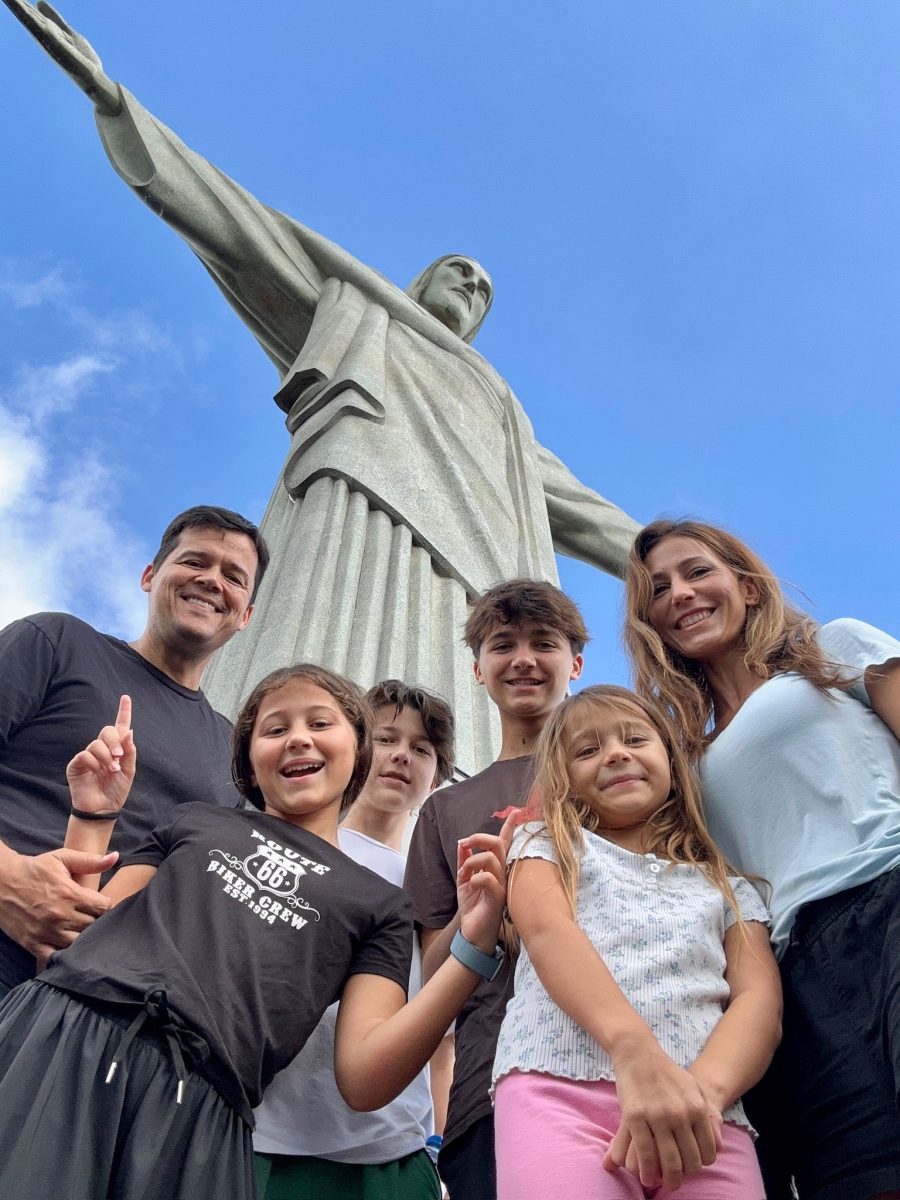Around the World in Eighty Days
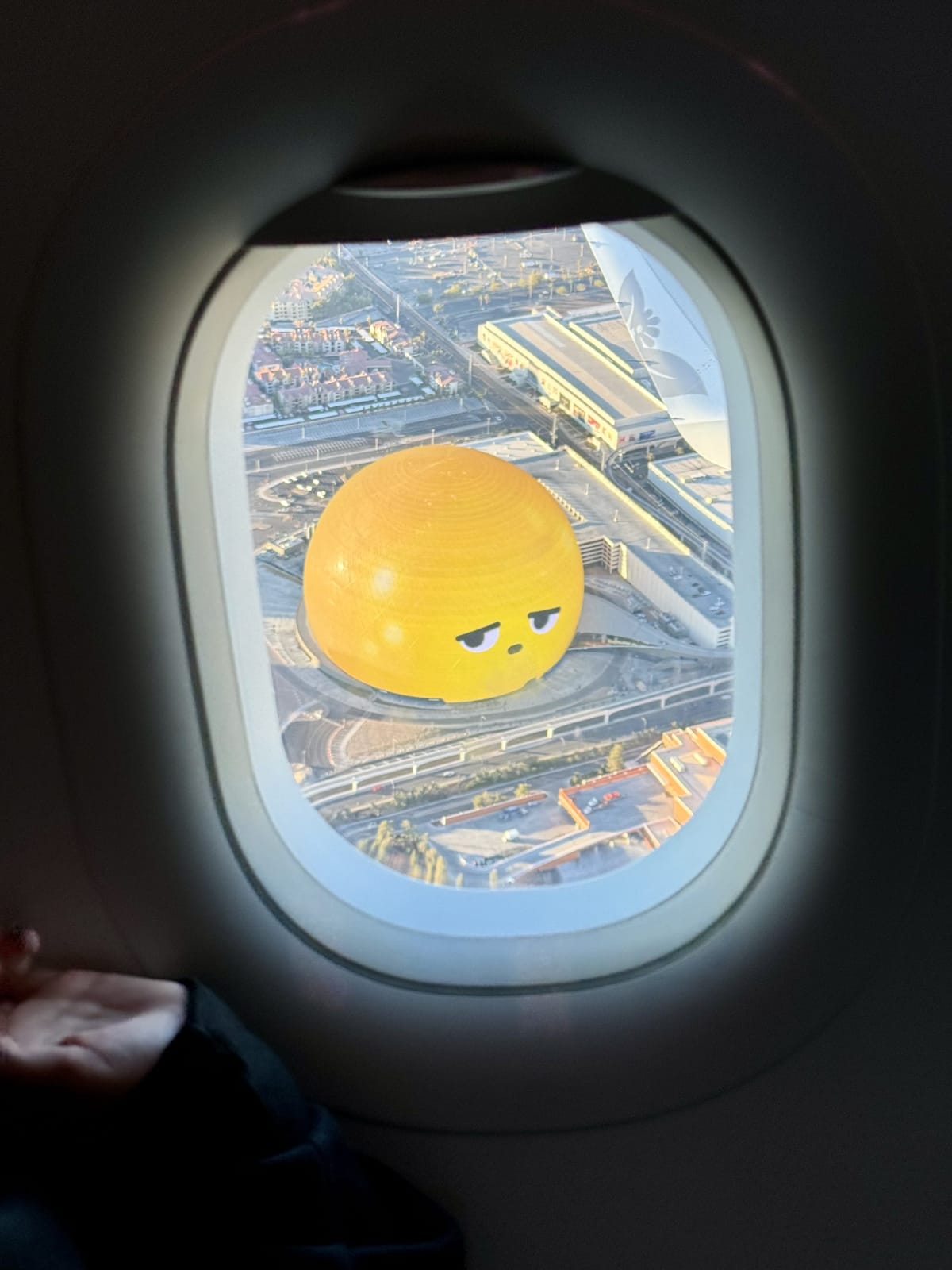
In his classic 1872 book, author Jules Verne wrote:
It’s really useful to travel, if you want to see new things.
That’s true. And it’s not just seeing new things. It’s also learning, feeling, smelling, and trying new things.
As we flew out of Las Vegas, I saw this view through the airplane window. A foreboding farewell from our home town.
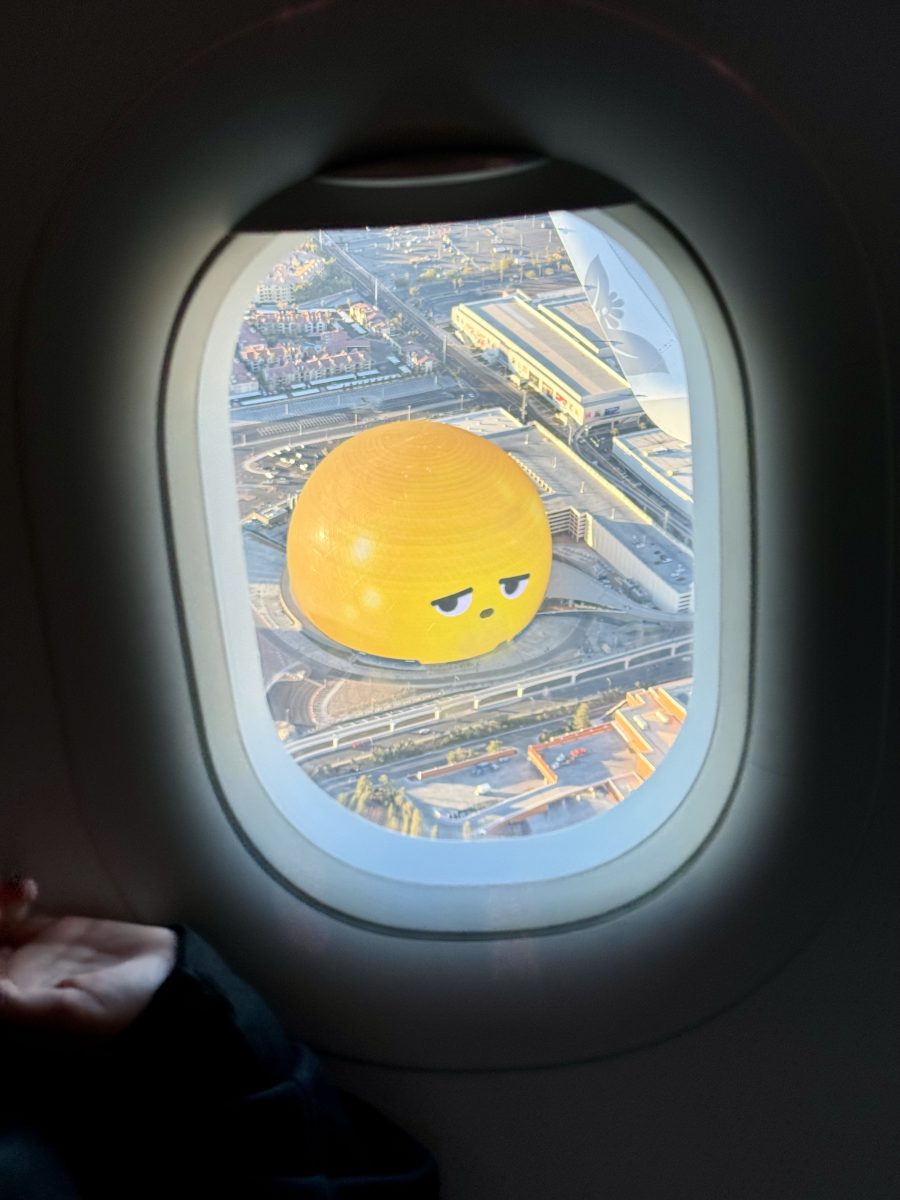
But everything turned out great.
We’re now back in Las Vegas after exactly 80 days around the world. (Jan 4-March 24)
Here are some observations and other things from our trip.
One Little Corner
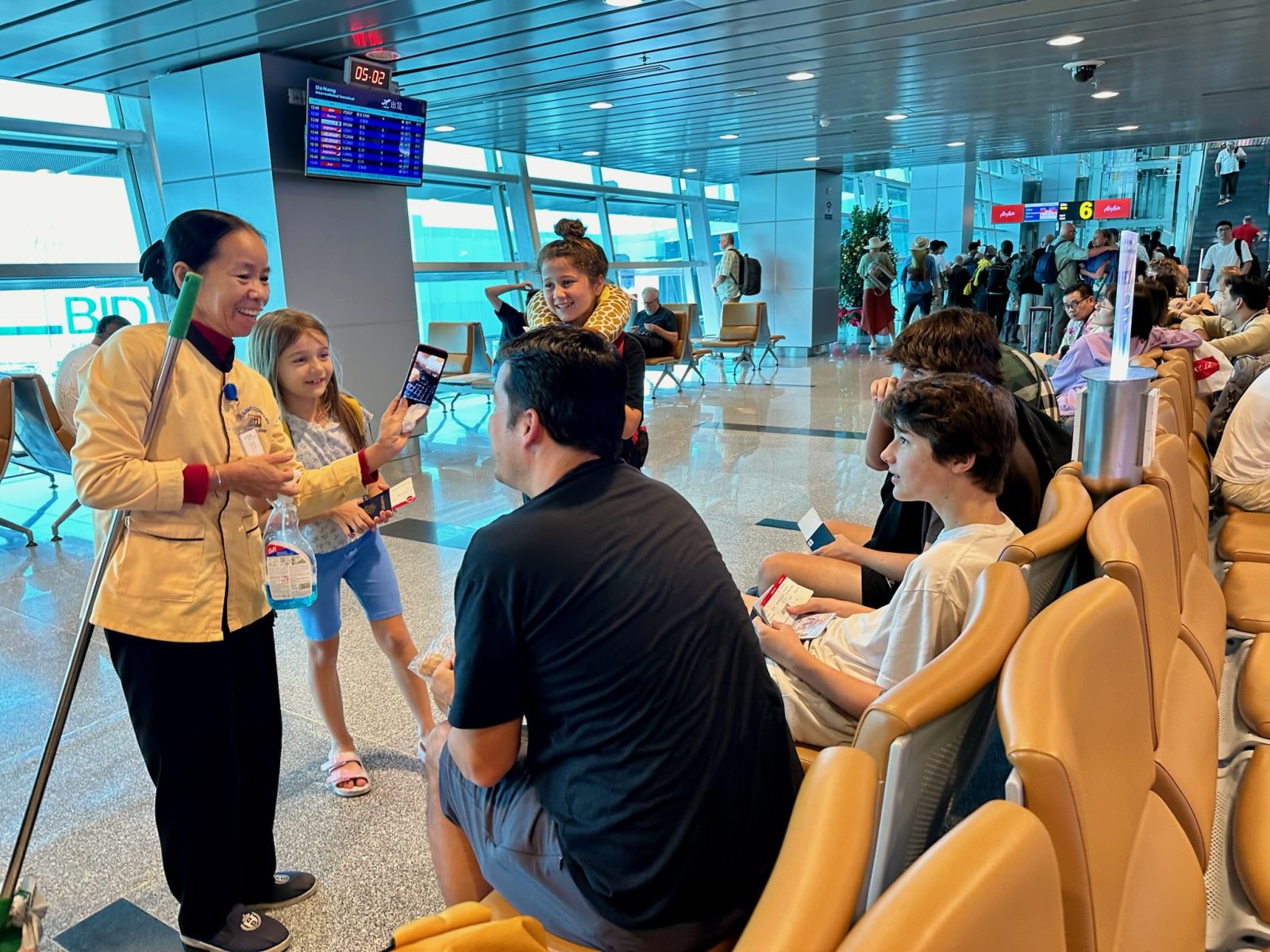
Meeting people from around the world and seeing their way of life was incredible. The kids especially learned to appreciate some things from home and also observed on how we can be better.
They loved the manners in Japan. They loved the easy-going approach in Vietnam. They loved the loud worship in New Zealand. They loved the acceptance in Malaysia. They loved the humility in Bolivia.
So much of what we hear in our world can seed distrust and division. But we all have more in common than we have differences. I love this travel observation from Mark Twain:
Travel is fatal to prejudice, bigotry, and narrow-mindedness, and many of our people need it sorely on these accounts. Broad, wholesome, charitable views of men and things cannot be acquired by vegetating in one little corner of the earth all one’s lifetime.Mark Twain
Our Heavenly Father loves all of his children and we should too. Being with them in their culture is a good way of learning that lesson.
Food and Medicine
When you travel this often, you never know when or what you’ll be eating. Luckily we were all remained mostly healthy and didn’t have any big mishaps, but some things to keep in mind:
- For twelve of the countries it was nothing but water bottles. Even if a city treats their water, by the time it runs through all the pipes to your house, who knows. Luckily, most countries sell big bottles of water very cheap so it’s just not worth the risk of bowel problems.
- In every country (expect Peru) we could find good local food to try. Luckily, there was at least one Mexican Food place in every country and that was the most reliable meal. (Except for Peru, where they put squash in the burrito. What’s that about?) El Loco in Sydney was among the best meals of the whole trip.
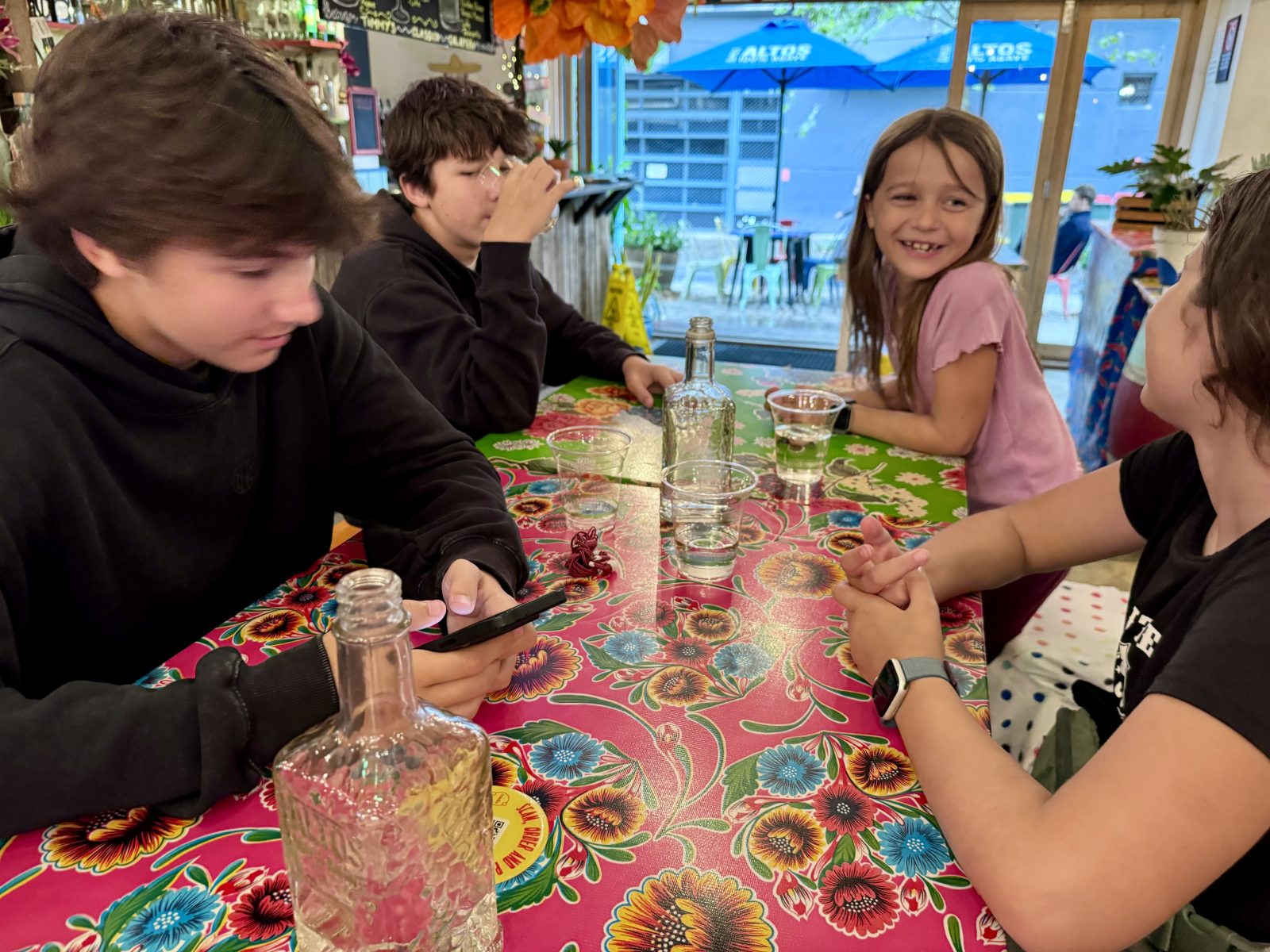
- We were very careful to get all the shots and vaccinations before we left. It took considerable effort and cost to get the yellow fever shot and card especially. No doubt we are healthier and safer because of this effort but not a single country asked for shot records of any kind.
- A good friend set us up with malaria pills, a couple z-packs, some allergy steroid pills, and motion sickness medicine. These came in handy. It’s worth talking to your doctor about travel plans and what you should bring. (We were able to find common medicines in some countries, but not others.)
- Despite all the Snickers, we lost about 10 pounds each. Lots of walking and less preserved food.
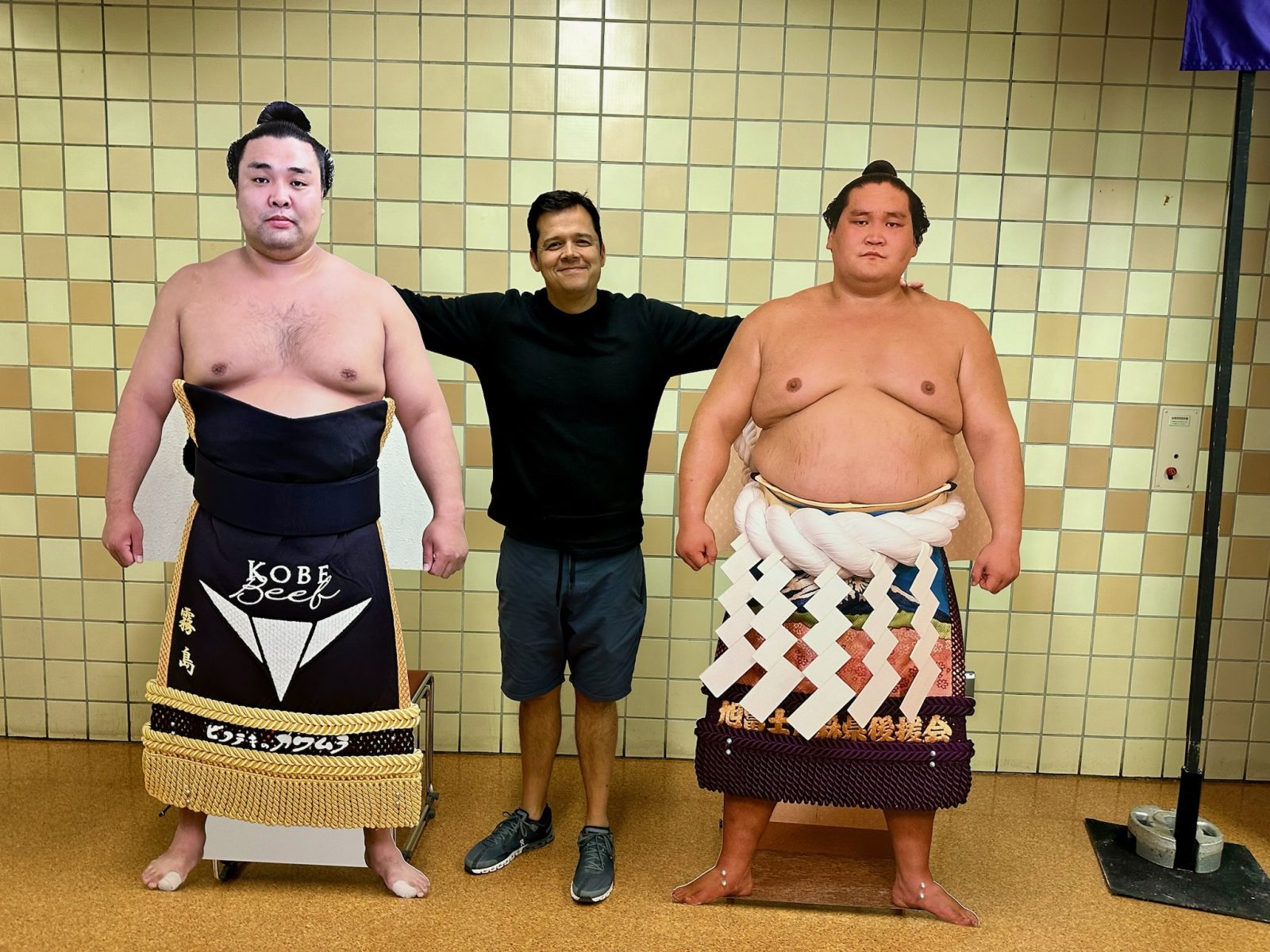
Technology and Apps
We have it good with technology these days. An iPhone and apps can help you do just about anything. Some notes:
- The iPhone now has a very useful Translate app built in and it works well. You can converse using the app, but you can also snap photos of signs/menus and have real time translation. This really helped in grocery stores and transit especially.
- When you jump from country to country, a good currency converter app is really helpful.
- In the US, Apple Maps is really good but in many other countries it struggles. I had to jump back to Google Maps again.
- Flighty is essential for keeping track of flights.
- International roaming for phone data is actually pretty affordable these days. With our carrier, it only charges for the first 10 days of international use and then the rest of the month is no cost. (And with most carriers, South America is included at no cost.) It added an expense but we kept data on all of our phones for the convenience and the safety.
- Everyone had a battery pack that attached to the back of their phones because travel days can be long. It’s really nice to store this in your backpack to be used in the afternoon.
- Airpods are so good and convenient for travel. To make them extra helpful, buy an iFlyto use on the airplane. This will let you listen to the in-flight movies with your AirPods instead of those junky headphones that the airline offers.
- We like to keep up with our sports teams while traveling. (We watched the Super Bowl in Thailand at 6AM on a Monday morning.) To make this possible, UHF is a very good IPTV app.
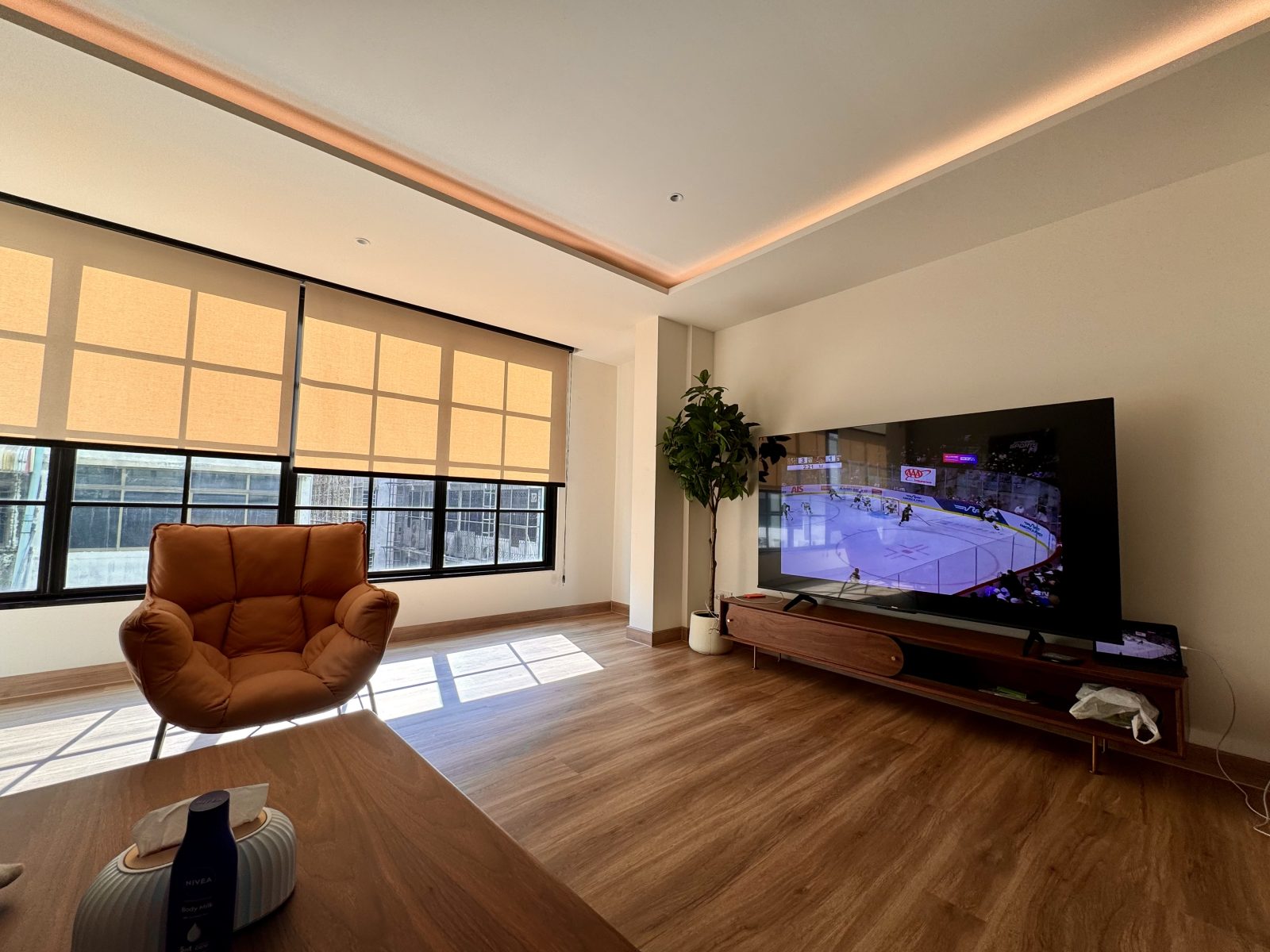
- It’s never fun to watch sports or family movies on a small iPad so a good iPad to TV cord is really helpful too. Airplay/Chromecast is often not available in other countries.
- Journaling is great all the time but especially on trips. We all journaled regularly just so we could record all that we experience. Day One remains the best for journaling.
Houses and Hotels
We stayed in all sorts of places. Some were spacious and nice. Others…not so much. They can’t all be like South Africa house. Some tips:
- For the sketchier locations, some good door stops can help you sleep much better at night. Use them on the external doors, or put one in each bedroom.
- Most of the AirBnB locations had laundry of some sort, but not always laundry detergent. Candace found these nice dissolvable sheets to be used in a pinch.
- Oh how we appreciated our big washer and dryer upon return. The tiny washers and hang-dry ropes mostly made your dirty clothes just a little bit less dirty.
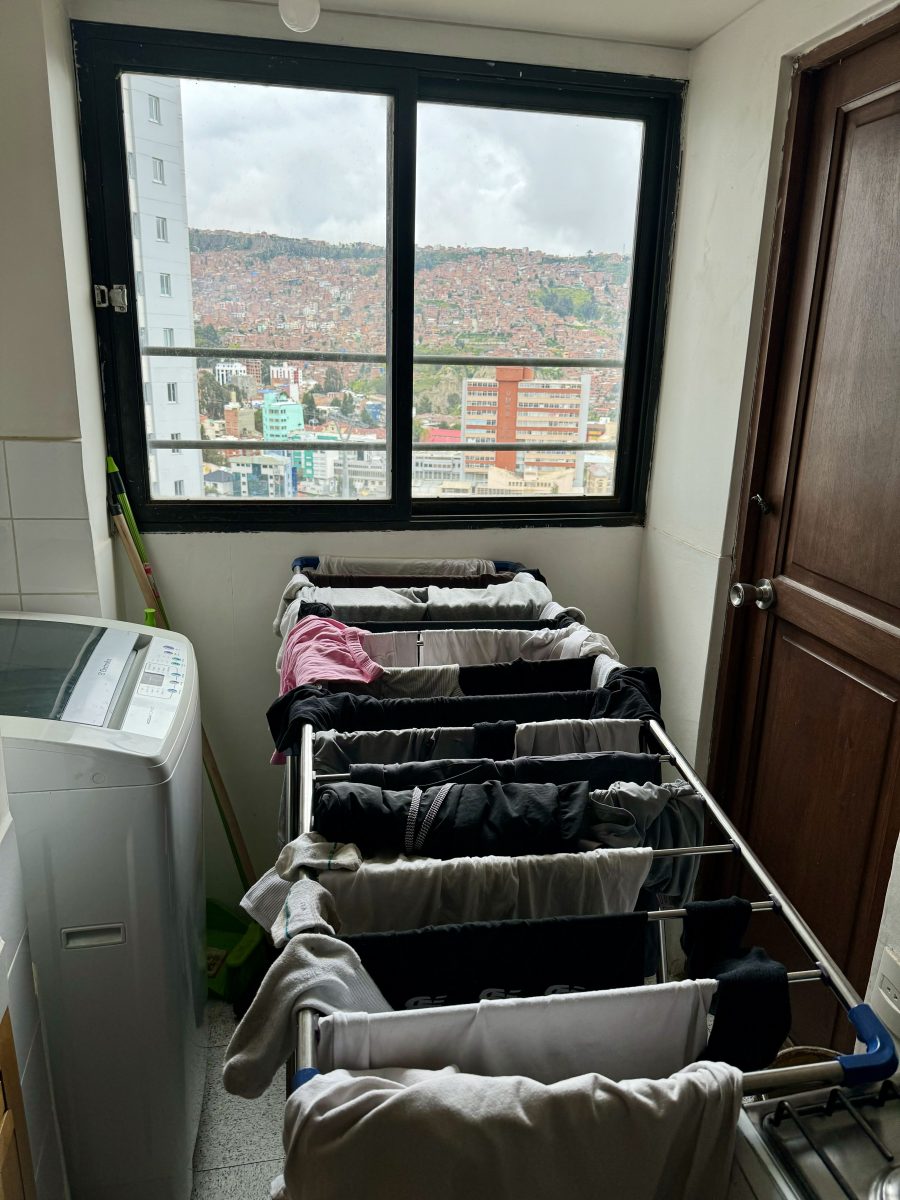
- When you visit that many countries, you’ll find outlets of all sorts. Luckily, this converter covered every continent for us. We threw one of these in each travel charger pack and that worked well.
- I used to think it would be fun to live in a high rise building. The views are nice, but I’m not about that elevator life.
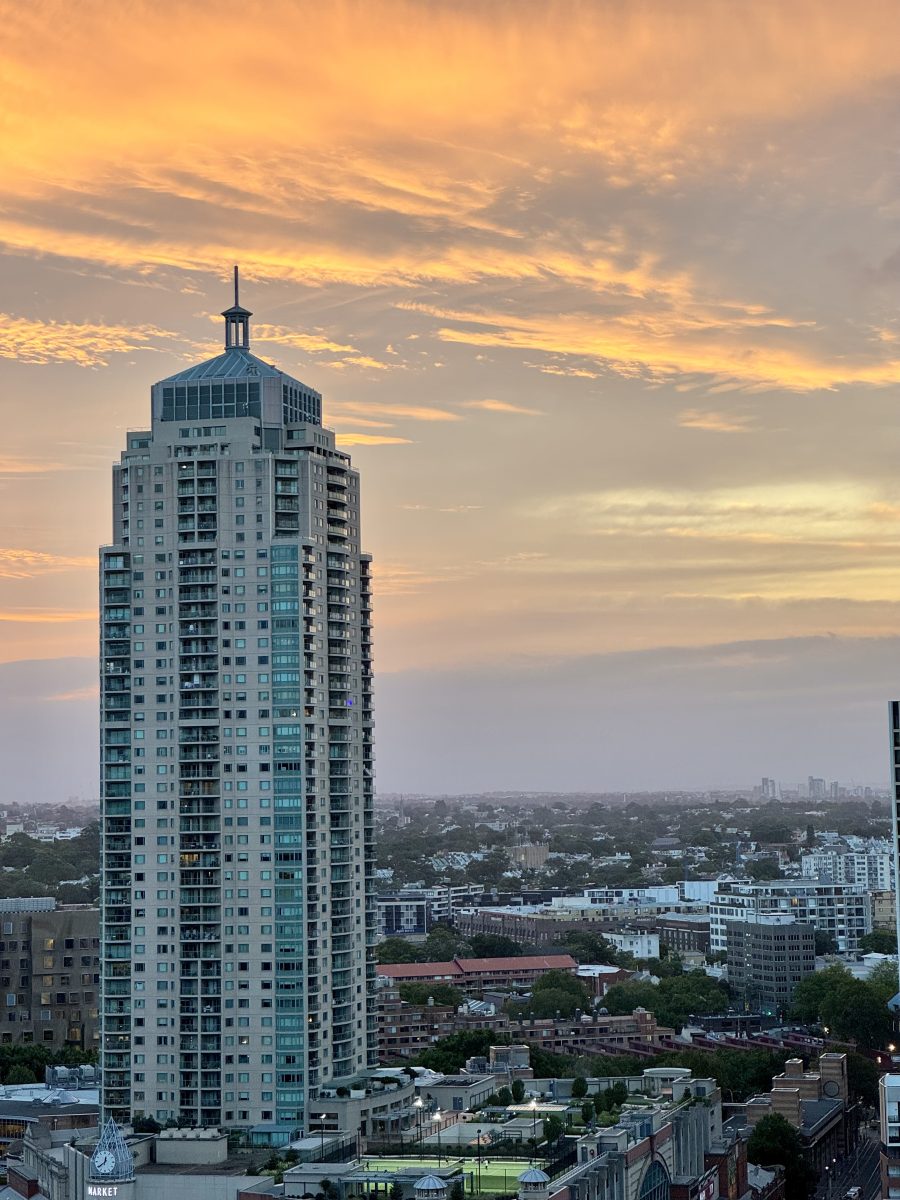
- You’d think toilets and showers would be pretty straight forward. That is just not the case. After a while you get used to tiny toilets, showers that don’t drain well, countries that don’t allow for flushing of toilet paper, water tanks not built for a family of six, and the like. Your expectation of these things just decrease. But when you get home, you remember the good life.
- If you were a person that can line up doors to close soft and without hitting the door frame, there is enough work for you in this world to keep you busy for the rest of your life.
But what then?
It’s not just the places we went on this trip. To be gone this long was life changing. You really do forget about normal life. When we got home, we all were shocked at the way life felt new and different. It’s little things like forgetting which light switch to use in our house. It’s big things like bedrooms that are actually dark at night.
It was a complete wipe of every day habits and a chance to evaluate everything. It’s really hard to explain how it feels.
But what is the bigger purpose? What was it all for?
As with most questions in life, the answer is family.
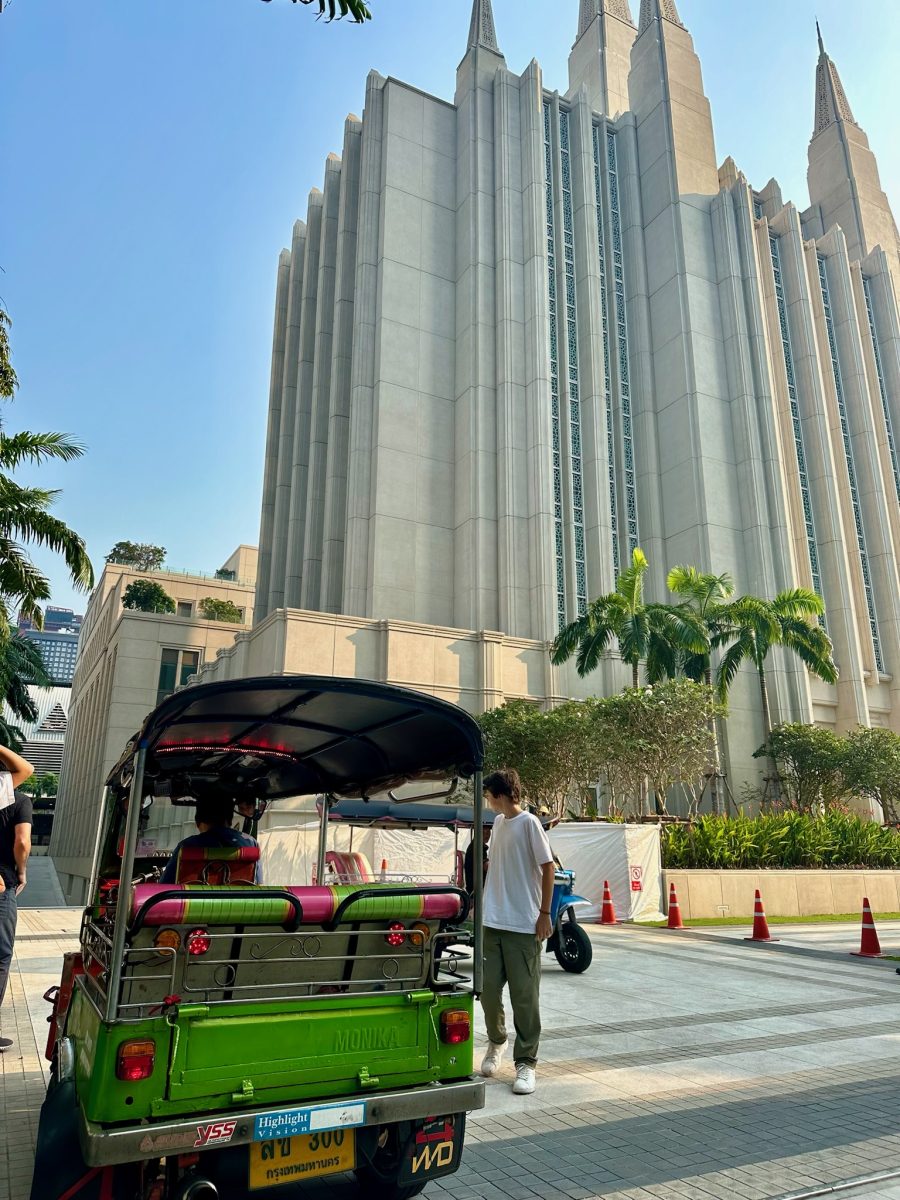
We took a tuk-tuk to church in Thailand. When we sat down and the hymns started playing, I watched the kids smile and feel “home” because it was familiar sound and feelings.
When the clouds moved away and we had the first view of Machu Picchu, Candace had pure joy in her face and in her giggle. Like the kind she can’t help but escape from her heart. That gives me the greatest feeling.
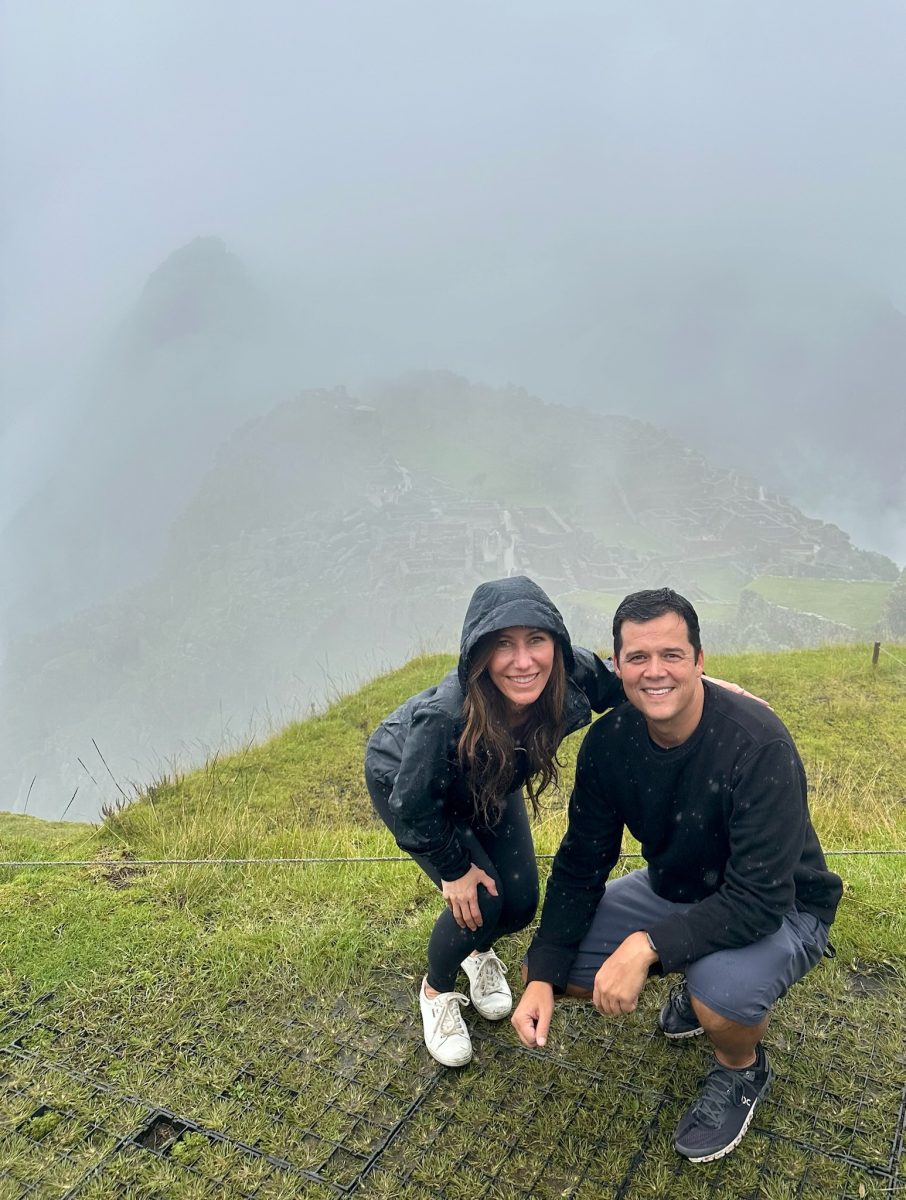
Returning to the classic book, the author writes the following (with slight variations by me):
But what then? What had he really gained by all this trouble? What had he brought back from this long and weary journey?
Nothing, you say? Perhaps so; nothing but a (happy woman and happy kids), who, strange as it may appear, made him the happiest of men!
Truly, would you not for less than that make the tour around the world?
The happiest of men indeed.
